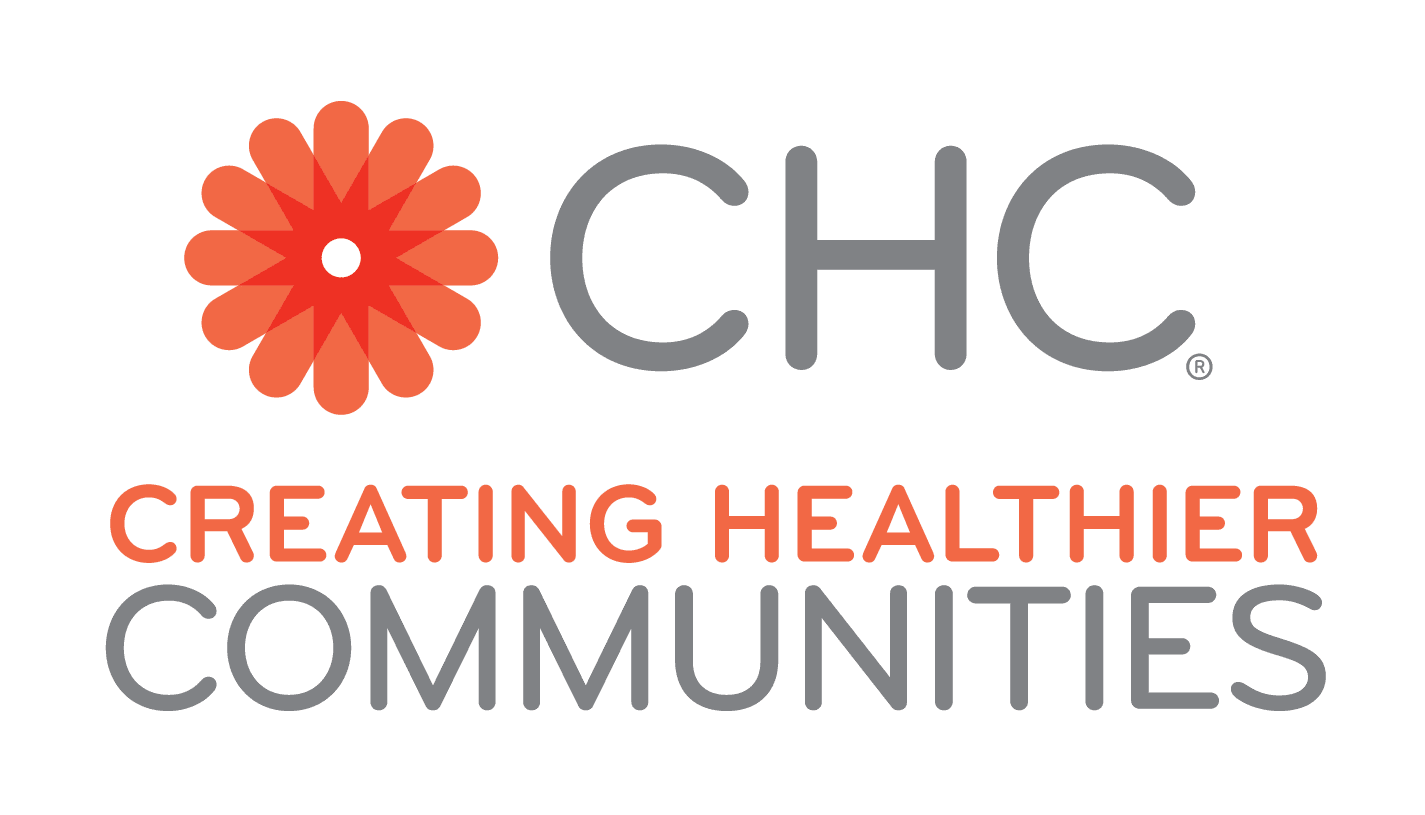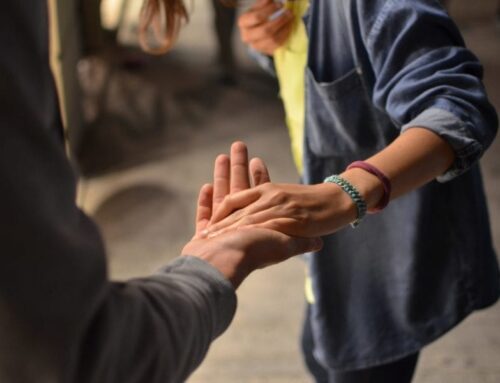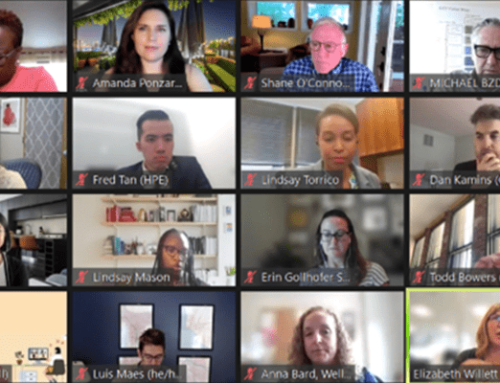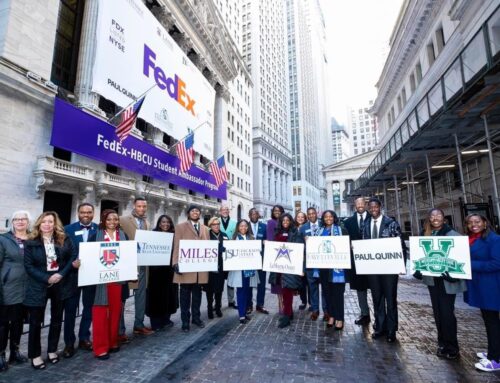Honoring Giving Tuesday: What Is Next Is Now
By: Michael Bzdak, PhD, Global Director, Employee Engagement at Johnson & Johnson
– As the “world’s biggest day of generosity,” Giving Tuesday—Nov. 30, 2021, this year—is always a reminder for me to take stock of the current year and look to the future. As we all know, 2021 has been a challenging and frustrating year since we had all hoped for more normalcy in our personal and professional lives.
From a Corporate Social Responsibility (CSR) lens, 2021 has been a momentous year, beyond the pandemic. COVID aside, CSR professionals have been essential actors in company responses to tackling racial and social injustice, as well as climate change and related environmental challenges. To make matters even more complicated, the private sector is grappling with how to shape the post-pandemic workplace.
New Opportunities for Corporate Leadership
To help address these evolving challenges, we are seeing new developments in the corporate environment worldwide. For example, in August, I was honored to join practitioners invited from more than 25 global organizations to create a new corporate leadership council for Creating Healthier Communities (CHC). Our mission is to work closely with CHC to advance CSR; environmental, social and governance (ESG); and diversity, equity and inclusion (DEI) issues—as well as support emerging leaders.
I am excited that this council will take on some of the biggest issues facing companies and the stakeholders they serve. Two things on our shared agenda are particularly important to me.
The first is our ability to quickly identify emerging issues so that we are all prepared for what is next. While none of us have the ability to make bold predictions about our future, we are all seeing clues and evidence from our interactions with stakeholders. We should recognize that the next is now.
One of the informative articles recently shared with CHC members came from Deloitte’s Center for the Edge. The Center published an insightful report on the future of philanthropy and outlined a methodology that looked at shifts taking place at all levels of society. As the authors state, “Alongside these shifts—and, in many cases, in response to them—people and organizations are continuously experimenting with new ideas and strategies at the edges of any field.” In many ways, social impact professionals—supported by our amazing employee volunteers—are part of the response to the major shifts taking place and are well positioned to support new ideas and strategies for the future.
The second issue on our agenda is to support and nurture the next generation of CSR and social impact professionals, as well as the employee volunteers we activate. How can we help emerging social impact professionals prepare for the profound changes taking place at the intersection of CSR, ESG and DEI? Part of the answer can be found in the classroom, where many future business leaders are first exposed to business/society relationships. I am already seeing encouraging signs of an academic transformation in efforts by the Aspen Institute and St. Joseph’s University.
Exciting Developments in University Classrooms
I was delighted to read about the “Ideas Worth Teaching Awards” selected by the Aspen Institute. These awards recognize extraordinary university educators who bridge the power of business with the greatest societal challenges of the day, ranging from climate change to racial injustice to the threat to democracy. These courses offer hope for future generations of students. For example, Dr. Courtney L. McCluney, Assistant Professor of Organizational Behavior in the ILR School at Cornell University, developed an impactful course that provides “the practical tools and frameworks needed to meaningfully incorporate equity into a company’s culture and DNA. Designed for both undergraduate and graduate students, the course provides a model of how to have productive and informed conversations on race and equity.”
Similarly, David Steingard from St. Joseph’s University developed a data analytics tool, the Sustainable Development Goals (SDG) Dashboard, that he and his colleagues at Saint Joseph’s created to measure institutional progress toward the SDGs. The SDG Dashboard allows institutions to concretely capture, measure and demonstrate how they are contributing to the 17 SDG goals. The dashboard’s development underscores the importance of teaching sustainability principles to future leaders.
While there is so much work to do in the coming months and years, I am hopeful that more collaborations will form to tackle the issues at hand. I am optimistic that organizations like the The Partnering Initiative will continue to be the catalysts for large-scale collaborations.
We should look to embrace the new ideas and strategies at the edges of the major shifts that we are experiencing in our world. One thing is certain: what is next is now. And future success depends on each and every one of us.
The Johnson & Johnson Talent for Good strategy aspires to activate our nearly 140,000 employees from across the globe to grow personally and professionally by applying their time, skills and resources to build healthier communities around the world. From donations to fully immersive assignments with NGO partners, Talent for Good creates opportunities for employees at all stages of their career to play their part in creating positive and meaningful change. Follow #TalentForGood to read other inspiring stories about how J&J employees and partners are collaborating to build a healthier, more equitable world, and learn more here.
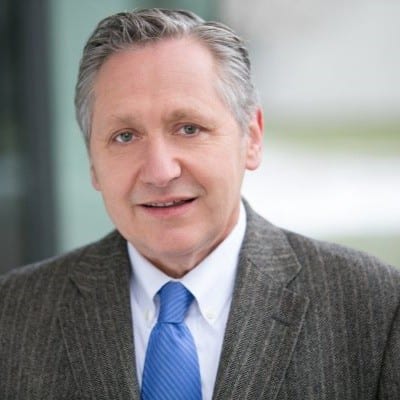
Michael Bzdak, PhD, Global Director, Employee Engagement for Johnson & Johnson
As the Global Director of Employee Engagement in the office of Global Community Impact at Johnson & Johnson, Michael Bzdak manages the corporation’s efforts to engage employees in social impact work. Michael serves on the New Jersey’s Governor’s Advisory Council on Volunteerism and Community Service and on the advisory board of Rutgers University’s Institute for Women’s Leadership. Additionally, he has served on the Council on Foundations Corporate Committee, the New Jersey AIDS Partnership Advisory Committee, the board of the Mid Atlantic Arts Foundation, and the New Jersey Council for the Humanities where he completed a term as chairman of the board of directors.
